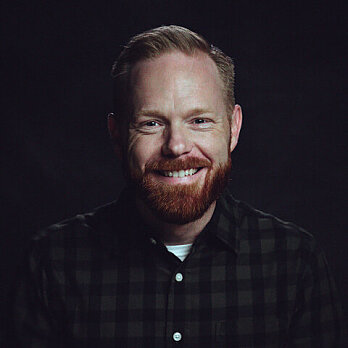How Does Mental / Emotional Health Connect with My Spiritual Walk?
We Have a Problem
According to Mental Health America, nearly 1 in 5 Americans will experience mental illness in a given year and over 46% will meet the criteria to be diagnosed with a mental illness at some point in their lives. These numbers reached historic levels during the COVID-19 pandemic and brought some needed attention to the mental health crisis that plagues America. The definitions, diagnoses, and underlying social causes affecting this conversation are outside of the scope of this article. Suffice it to say, we have a problem and the church should have a clear solution. So, what is that solution? Is it entirely medical? Entirely spiritual? Both? And once we answer that and move on to trying to help people, where do we begin?
We Are Not the Sum of Our Parts
I am not mechanically inclined whatsoever. Whether trying to change my oil or replacing that bobber thing in the back of the toilet, there’s a good chance I’ll end up paying someone to fix what I messed up in my attempt. Every once in a while, I do catch a win though. Like in the case of that bobber thing. I attribute my success, at least in part, to a helpful step at the beginning of the process. I went to our other bathroom and looked in the back of the not broken toilet. Seeing what the broken one should look like undoubtedly saved me a significant amount of time and frustration. While it's probably not very pastoral of me to compare people to toilets, I think the same logic is helpful here. Before we can figure out what to do and how to understand these broken elements in our minds and emotions, we need to see what they were supposed to look like.
In the beginning, man was a whole being. Body, mind, and soul all aligned and functioning as they should. Emotions are not a result of the fall. They are as connected to what it means to be human as rationality is. Man is a thinking and feeling creature. Adam’s fall brought a fundamental change upon all creation. The consequences of his failure to trust God have rippled all the way to the human psyche. When we turn to Christ in faith and are born again, regeneration takes place and a process of full redemption begins – a process that will not be complete until Christ returns or we go to Him. In the meantime, here we are: new creatures in Christ, but still feeling the weight of the fall in various areas of life, including our mental and emotional health.
How Does That Relate to My Current Walk with Christ?
Our spiritual health can’t be separated from our mental and emotional health. Just as our desires and actions are continually being conformed to the image of Christ, so our thoughts and feelings are also in this process of redemption. We need to be careful that we don’t base our spiritual health on our mental or emotional experience. I would contend that mental and emotional health is not the absence of symptoms, whether they be depression, anxiety, or otherwise, but rather a proper response to those symptoms. One can still feel depressed and be considered mentally and emotionally healthy by submitting those feelings to Christ for redemption and seeking behavioral practices or medicinal assistance when necessary. That being the case, we need to be equally careful that we don’t compartmentalize mind and emotion to the point that they are detached from our spiritual life. A brief survey of the Psalms would show us that the overlap between mind, soul, spirit, and even body is one that the Psalmist takes for granted (Ps. 6:6, 38:9, 42:11, Prov. 17:22). This gives us our two ditches to avoid. On the one side, we must not make our thought patterns and emotional states the arbiters of our spiritual health. On the other side, we must not ignore the value that our mental and emotional health adds to our lives and to God’s glory.
Healthy Integration
Understanding that man is a whole creature and that his mind and emotion can’t be separated from his spiritual walk leads us to seek, and even prioritize, healing and redemption in those areas. How do we do this? Space does not allow us to get into detail on this, but I will sketch out a couple of parameters for us. The common temptation is to see mental and emotional health as only a spiritual issue or only a medical issue. We need to avoid this. The answer to depression is not always in improving the faith life, but sometimes it is. The answer to anxiety is not always in medicine, but sometimes it is. There are issues of mental health that stem from sinful behavior and unbelief. Likewise, there are also issues that stem from past trauma, misfirings in the brain, and deeply embedded stress responses and defense mechanisms which have become entirely involuntary or compulsory.
Embracing an integrated approach that uses God’s common grace, revealed in proven therapeutic / medicinal practices and pastoral care provides the necessary balance. We must not be naive, however. Not everything that is called science is science and not everything that is called medicine is medicine. The safeguard for this is recognizing that nothing is morally neutral. Doctors are not morally neutral. We are not morally neutral, nor should we be. Everyone operates from a particular worldview and that worldview will determine how they approach mental and emotional healthcare. If we recognize this and take it into account when selecting who we will allow our kids to be taught by or the entertainment we will partake in, how much more should we be selective in who we seek out for the care of our thinking and emotions? A pairing of the church and those trained in the mental health field who share the church’s convictions seems to me to be the best course until that day when the mental health professional, or any health professional, is no longer needed.=
Until That Day
Even as the whole of creation groans for its final redemption (Rom. 8:22), our minds and emotions long for the day when all is put right. We live in what theologians call the “already and not yet”. Christ has already come and brought His kingdom but He has not yet brought it in its fullness. In Christ, we have indeed experienced freedom and renewal in our minds and emotions, but we have not yet seen that freedom in its fullness. Those benefits that we have in the already vary from person to person. Consider something related; some believers experience more growth and victory over certain sins than others. One struggles against gossip, and another never has to fight that sin. One wrestles against lust to the point of exhaustion while another isn’t particularly troubled by it. One has great childlike faith, while the other has to make a conscious effort to believe what God has said moment by moment. Our mental and emotional health battles are not sin in themselves, but they are no less products of the fall. If that health were measured on a scale of 1-10, 10 being full redemption, all people would be somewhere on the scale and there would be as much diversity in the range as that which exists in the different levels of victory and defeat in our various struggles with sin. Mental and emotional pain, disorder, and illness are just as temporary as cancer, sin, and death. For those of us who have to fight harder for wholeness and redemption in this area of our lives, let us not grow weary in the battle (Gal. 6:9). The pursuit of Christlikeness in our thinking and feeling is worth the fight, and it will certainly be worth the reward at the end of the road.

Nick Judd is the Kids Pastor at The Journey Church in Lebanon, TN. He is also the co-host of the "Everyday Apologetics" podcast. Nick is passionate about growing people in their knowledge of the Word of God and in their ability to defend it in the midst of a culture fighting against truth.
Recent Articles:
- What Does the Bible Say About Gambling?
- How to Approach Reading the Bible: 66 Books, One Focus
- When Our Logic Doesn't Make Sense
TOPICS
- Anxiety, Depression, Grief


